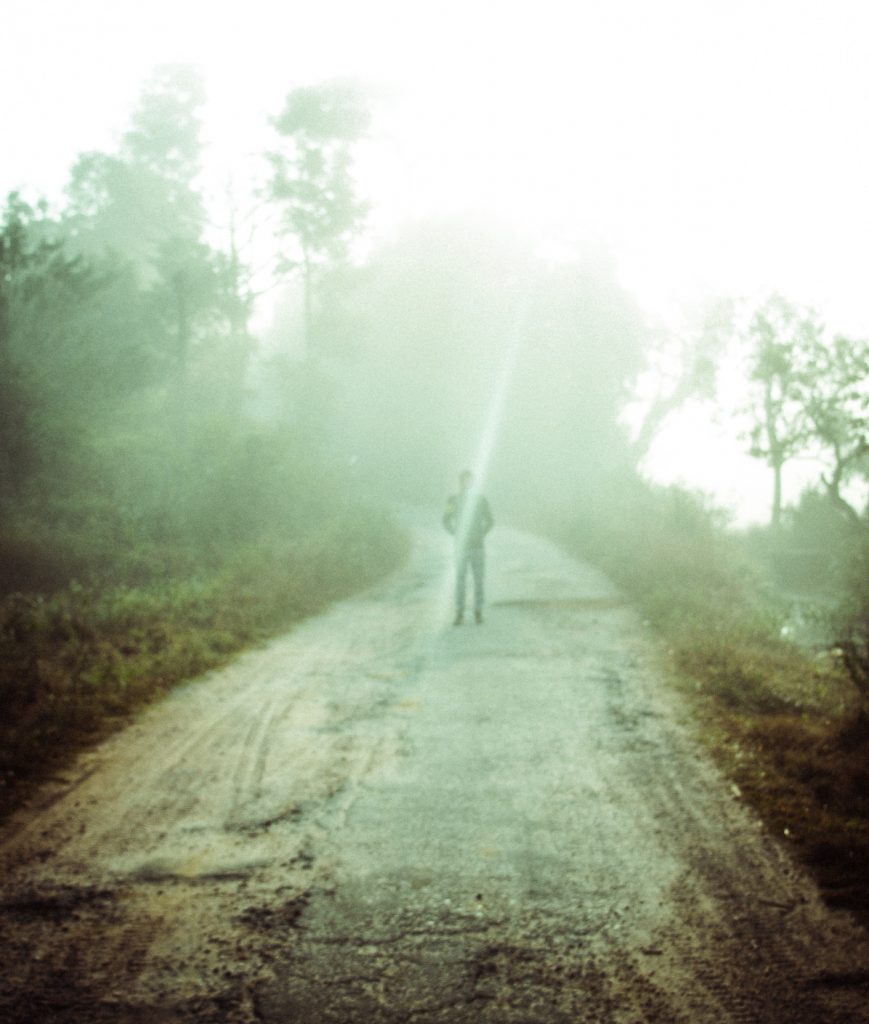A couple of weeks ago, craving some solitude and union with nature, I went for a meditative walk in the deep fog and soft drizzle that had been ongoing for days in Northern California. Just two blocks from my home, a young man approached me, and I greeted him with a slight smile—until he got closer.
“Give it up,” he said, and I heard a click. I glanced down, and there was a switchblade pointed at my belly. “What do you mean?” I replied. I honestly didn’t know. But he restated his demand more forcefully and proceeded to pat me down.
I didn’t have anything on me. “I don’t even have a phone,” I told him. He lifted up my raincoat and felt my jean pockets. Seeing that I was telling the truth, he dropped my jacket and then walked away. Just like that. And so did I.
I was shaken as he moved away, but a part of me remained surprisingly calm. There’s no way to completely prepare for the shock of being robbed at knifepoint, but my meditation practice of 30 years provided me with some skills that I leaned on that day.
As the mugging unfolded, I did as I had been trained to do and maintained keen awareness of my body while also feeling the surreal quality of this experience. I had stood very still, my gaze calmly on his face while my awareness shifted to my feet, then to my heart and its rhythm, which was normal, and then to my belly to sense if it was tight. This scan was fast but thorough. I was aware of the danger I was in as well as an inner calmness. This mindfulness grounded me in a moment when my thoughts could have spun out of control.
As I walked home, my pace was as slow as it had been before. I took about six steps before I thought I should turn around and make sure that he wasn’t behind me about to stab me in the back. I saw that he had gotten to the end of the block, and I watched him turn the corner, disappearing from my view.
I kept walking and soon saw a man on a bike. I asked him to call the police, but he did not have a phone either. As I told him what had happened, my heart began pounding. He then shared a story of when he was mugged, and we started to laugh about how bizarre these experiences were. My heart relaxed, and I continued on my way.
Back at my house, I called the police, and then sat on my sofa. I still had a lot of feelings that I needed to process, so I engaged in what I have come to think of as couch practice.
When I am experiencing strong emotions, whether they are very pleasant or unpleasant, I sit on my sofa and (if I am able) give myself time to really feel them. I pay particular attention to the somatic, or bodily, aspect of my experience, which includes sensations, emotional tones, and intuitive sensing. Recognizing whatever arises allows me to form a more complete picture.
Everything has a resonance, whether we are aware of it or not. Trauma can bury itself quickly in the body. Was there trauma in my body now? I could find none. I felt fine. I was calm, safe, dry, and unharmed—and I was most of all grateful. At the same time, I felt incredibly sad for the young man whose conditions brought him to the point of threatening someone with a knife. My sympathy for him and joy at being alive swirled together as I sat on that couch and watched them mingle for a while.
The experience was not pleasant to say the least, but I had a choice about how many times I would replay it, and how much I would add to it, or not. I deliberately decided to let the experience be consciously replayed a few times, then let it go. I know all too well how adding a story to a situation only gives it a deeper imprint. My practice has served me, especially in this regard.
I am reminded of this beautiful teaching by Kosho Uchiyama Roshi suggesting that we “open the hand of thought.” By opening the hand, we let go of whatever was in its grip, and refrain from grasping something new. With time, meditation practice makes it easier to choose what to focus on, let go of, linger with, indulge in, turn away from, enhance, or reiterate. And it has allowed me to see this experience as yet another opportunity for opening—for keeping my eyes wide, my heart soft, and my hands open.
Thank you for subscribing to Tricycle! As a nonprofit, we depend on readers like you to keep Buddhist teachings and practices widely available.
